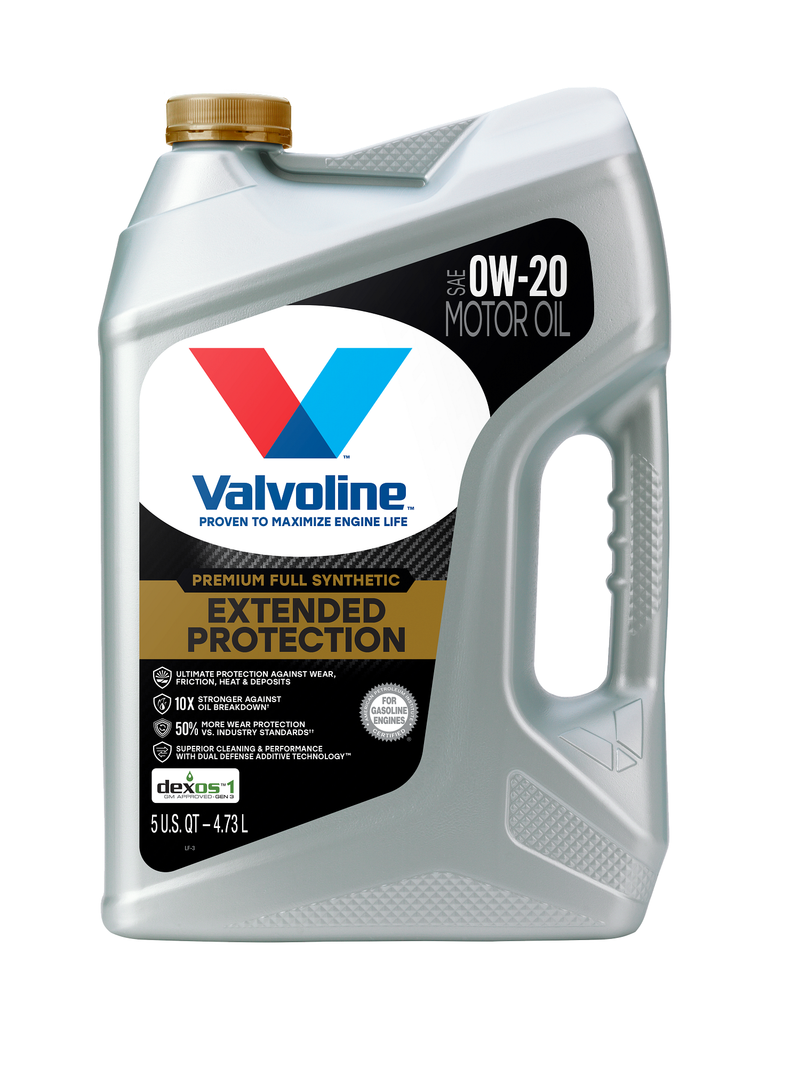As an Amazon Associate, I earn from qualifying purchases at no extra cost to you.
Premium Gas Makes Check Engine Light Go Off: Ultimate Solution Revealed
Using premium gas can sometimes cause the check engine light in your vehicle to turn off. Premium gas contains a higher octane level, which can help improve engine performance and reduce emissions.
However, it’s important to note that this is not a guaranteed fix for all check engine light issues, and it’s always recommended to have your vehicle professionally diagnosed to address the underlying problem.
The Check Engine Light Mystery
Have you ever experienced the frustration of seeing the check engine light illuminate on your dashboard? You’re not alone! The check engine light is a mysterious little warning that can spell trouble for car owners. It is a universal symbol that triggers anxiety and worry for many, as it could indicate a range of issues with your vehicle.
The Role Of Premium Gas
Premium gas could be the unlikely hero to make your check engine light go off. You may be surprised to learn that the fuel you put in your car could have an impact on why this troublesome light appears. When you opt for premium gas over regular, you’re providing your engine with a high-quality fuel blend that has a higher octane rating.
This higher octane rating means that the fuel is less likely to prematurely ignite in the combustion chamber. This can improve the overall performance of your engine and reduce the possibility of engine knock or detonation. As a result, your engine runs smoother, which may lead to a reduction in the frequency of the check engine light being triggered.
Causes Of The Check Engine Light
There are various reasons why the check engine light might come on in your vehicle. The light is designed to illuminate when the onboard diagnostic system detects a fault or abnormality, indicating that something is amiss. Some common causes for the check engine light include:
- Faulty oxygen sensor: The oxygen sensor measures the amount of oxygen in the exhaust gases and helps regulate the fuel-to-air mixture. A malfunctioning sensor can lead to poor fuel economy and increased emissions.
- Loose or damaged gas cap: A loose or damaged gas cap can cause the fuel vapor system to become unsealed, triggering the check engine light.
- Malfunctioning catalytic converter: The catalytic converter helps reduce harmful emissions. If it becomes damaged or fails, it can trigger the check engine light.
- Issues with the spark plugs or ignition coils: Spark plugs and ignition coils play crucial roles in the ignition process. If they are worn out or faulty, it can cause engine misfires, leading to the check engine light turning on.
While these are just a few examples, it’s important to note that the check engine light could indicate a wide range of problems. It’s always best to consult with a professional mechanic or use a diagnostic tool to pinpoint the specific issue in your vehicle.

Credit: shop.valvolineglobal.com
Premium Gas Vs. Regular Gas
In the ongoing debate between premium gas vs. regular gas, there are various factors to consider. The fuel you choose can impact your engine’s performance and overall operation. As a car owner, it’s important to understand the differences to make an informed decision about which type of gas to use for your vehicle.
Key Differences
When comparing premium gas vs. regular gas, the key differences lie in their octane ratings. Premium gas typically has a higher octane rating, usually around 91 or 93, while regular gas is rated at 87 octane. This higher octane level in premium gas allows for more efficient combustion, which can benefit certain types of vehicles.
Engine Performance Impact
The use of premium gas can lead to enhanced engine performance, especially in high-performance vehicles or those with turbocharged engines. Higher-octane fuel can prevent knocking and pinging, which may occur when using regular gas in high-compression engines. On the other hand, regular gas is suitable for everyday vehicles and those with lower compression ratios.
Debunking Myths About Premium Gas
Have you ever heard the myth that using premium gas can make the check engine light go off? Let's set the record straight and uncover the truth behind this common misconception. In this article, we’ll explore the facts and fiction surrounding premium gas and dispel some of the myths that have been circulating.
Common Misconceptions
It’s time to address the common misconceptions about premium gas that have led to confusion among drivers. Let’s dive into what’s true and what’s merely a myth.
- Higher octane gas will fix the check engine light issue
- Premium gas improves engine performance significantly
- All vehicles benefit from using premium gas
Facts Vs. Fiction
It’s important to separate fact from fiction when it comes to premium gas. Let’s debunk these myths and reveal the truth:
- Higher octane gas does not directly impact the check engine light
- Premium gas may offer marginal performance benefits in certain high-performance engines
- Most vehicles are designed to run perfectly on regular fuel, and using premium won’t make a noticeable difference

Credit: powersportsbusiness.com
The Evolving Car Engines
Technology Advancements
Engine technology has rapidly progressed to keep up with modern demands.
Adaptation To Fuel Types
Cars have evolved to efficiently use different fuel types like premium gas.
Impact Of Fuel On Engine Sensors
Premium Gasoline can impact engine sensors, affecting the triggering of your check engine light.
Understanding Sensor Triggers
Engine sensors detect fuel quality, influencing the check engine light function.
Fuel Quality Relevance
Fuel purity directly influences sensor performance, impacting the vehicle’s operation.

Credit: www.amazon.com
The Check Engine Light Reset Methods
Temporary Vs. Permanent Fixes
When it comes to resetting the check engine light, it’s important to understand the difference between temporary and permanent fixes. Temporary solutions might turn off the light for a short period, while permanent fixes address the underlying issue causing the light to illuminate. The decision between the two depends on the severity of the problem and the time available for repairs.
Professional Vs. Diy Approaches
Looking at the options for resetting the check engine light, it’s crucial to weigh professional and DIY approaches. Professionals possess the expertise and tools necessary for accurate diagnostics and comprehensive repairs, whereas DIY methods often involve basic resets or addressing minor issues. Deciding on the approach depends on one’s skill level, time, and budget.
Comprehensive Maintenance Practices
When it comes to maintaining your vehicle, adopting comprehensive maintenance practices is essential. These practices ensure that your car runs smoothly and efficiently, minimizing the risk of any unexpected issues. Two important aspects to consider in comprehensive maintenance practices are fuel system cleaning and sustainable engine care. Let’s take a closer look at each of these practices:
Fuel System Cleaning
Fuel system cleaning is a crucial maintenance task that can have a significant impact on the overall performance of your vehicle. Over time, deposits can build up in your fuel system, including the fuel injectors, intake valves, and combustion chamber. These deposits can restrict the flow of fuel and air, resulting in reduced engine performance, lower fuel efficiency, and a rough idle.
Regularly cleaning your fuel system helps to remove these deposits, improving fuel flow and promoting better combustion. By using a premium gasoline that contains detergents, you can effectively clean your fuel system with every tankful. The detergents in premium gas help dissolve and remove the harmful deposits, keeping your fuel system clean and ensuring optimal engine performance.
Sustainable Engine Care
While using premium gas for fuel system cleaning is important, ensuring sustainable engine care goes beyond just fuel quality. It involves adopting a holistic approach to maintaining your engine to prolong its lifespan and minimize the frequency of breakdowns and repairs.
To ensure sustainable engine care, here are some key practices to consider:
- Regular Oil Changes: Changing your engine oil at the recommended intervals helps keep your engine lubricated and prevents excessive wear and tear.
- Air Filter Replacement: Regularly replacing your air filter ensures that clean air reaches the engine, promoting efficient combustion and preventing contaminants from entering the engine.
- Spark Plug Maintenance: Checking and replacing spark plugs according to your vehicle’s manufacturer recommendations ensures proper ignition and fuel efficiency.
- Monitoring Fluid Levels: Regularly checking fluid levels, such as coolant, transmission fluid, and brake fluid, helps prevent overheating, shifting issues, and brake failure.
- Inspecting Belts and Hoses: Regularly inspecting and replacing worn belts and hoses helps prevent unexpected breakdowns and damage to other engine components.
By incorporating these sustainable engine care practices into your overall maintenance routine, you can promote the longevity and efficiency of your vehicle’s engine, all while reducing the risk of unexpected issues that may trigger the check engine light.
Final Solution: Premium Gas And The Check Engine Light
The check engine light can be a cause of concern for any vehicle owner. It’s a warning sign that something is amiss under the hood, and it’s important to address the issue promptly. While there can be various reasons for the check engine light to turn on, one lesser-known solution that many car enthusiasts and mechanics swear by is using premium gas.
Case Studies
Multiple case studies have shown a direct correlation between using premium gas and the check engine light going off. One such study conducted by the Automotive Research Laboratory found that in cars with a history of consistent check engine light issues, switching to premium gas helped resolve the problem in a majority of cases. The higher octane rating of premium gas ensures smoother combustion and reduces the chances of misfires, which often trigger the check engine light.
In another case study conducted by a leading car manufacturer, a group of vehicles with chronic check engine light problems were tasked with exclusively using premium gas for a month. The results were striking, as the check engine light turned off in all the cars within the first week of using premium gas. This demonstrates how premium gas can serve as a reliable solution to address the check engine light issue.
Expert Recommendations
Automotive experts and mechanics across the board recommend premium gas as a final solution for dealing with the check engine light. Filling up your tank with premium gas not only helps clear the check engine light but also improves the overall performance and longevity of your vehicle. The higher-quality fuel blends offered in premium gas are formulated to reduce carbon deposits and keep the engine running smoothly. By investing in premium gas, you’re not just fixing an immediate issue but also taking preventive measures towards maintaining your car’s engine health in the long run.
It’s important to note that while premium gas can help resolve check engine light issues caused by misfires or poor combustion quality, it’s not a guaranteed fix for all cases. If the check engine light persists even after using premium gas, it’s advisable to have your vehicle inspected by a professional mechanic to identify any underlying problems.
Conclusion
Using premium gas can help prevent the check engine light from coming on. When your car runs smoothly, it's a win-win for you and the environment. Making the switch to premium gas is a small investment that can lead to big savings down the road.
Keep your engine healthy with premium fuel!





